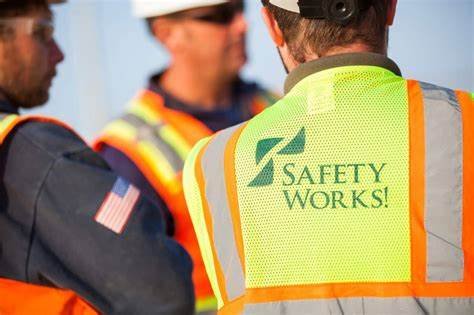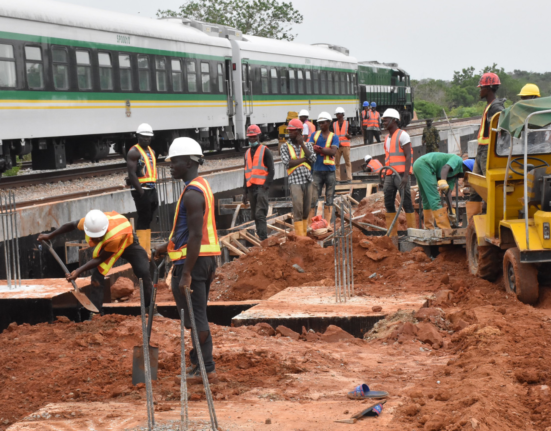In response to mounting concerns about rising workplace hazards and a surge in injuries among public workers, the state of Maryland has proposed enhanced legislative measures to improve the safety and well-being of its workforce. This initiative is grounded in the state’s commitment to ensuring that public workers across various sectors ranging from healthcare, law enforcement, transportation, and municipal services are equipped with the best protections against the risks they face daily. With the workplace safety landscape continually evolving, Maryland’s proposal seeks to adapt to new challenges, offering improved safeguards that address emerging threats to worker health, both physical and mental.
As the demand for public services continues to grow, workers across various sectors are exposed to an increasing array of risks. These hazards can range from physical dangers such as machinery-related accidents, falls, and exposure to toxic substances, to more insidious threats like workplace stress, burnout, and mental health challenges particularly for those in high-pressure roles such as healthcare providers, emergency responders, and law enforcement officers. The introduction of this new legislation is the state’s proactive response to mitigate such risks, with the aim of reducing workplace injuries and fatalities and ensuring that workers have access to the necessary resources and support to manage and overcome the challenges they encounter in their roles.
For engineers and public sector managers, this legislative shift presents an essential opportunity to engage with a broader discussion on workplace safety. In the construction and public sector project domains, workplace hazards are an everyday reality, and the need for enhanced safety protocols is vital to ensuring that workers are not exposed to undue risks. As Maryland aims to enhance protections, it is clear that engineering professionals will play a crucial role in implementing and improving safety systems. This could range from designing more robust safety protocols to integrating advanced safety technologies, ensuring compliance with new safety standards, and creating work environments that prioritize worker well-being.
The proposed legislation outlines several key elements designed to address these rising hazards. One of the main features of the bill is the introduction of stricter safety standards and guidelines across various industries, particularly in sectors known for their high-risk nature. These regulations will require employers to implement enhanced risk assessment protocols, conduct more frequent safety audits, and ensure that all safety equipment meets updated safety benchmarks. The new regulations are also expected to push companies and organizations to conduct regular safety drills and provide ongoing education and training to their staff on the latest workplace safety practices.
For engineers, this legislative change necessitates a deeper involvement in the development and execution of safety systems tailored to each public sector profession. In high-risk environments like construction and public healthcare, engineers will need to evaluate the design of workplaces to ensure that they meet new safety standards. This could include redesigning workspaces to minimize risks of accidents or designing new technologies and systems that monitor safety in real-time, alerting workers and safety officers to hazards before they escalate into dangerous situations. Moreover, engineers will be at the forefront of adapting and integrating smart technologies that ensure safety measures are not just compliant but proactive, helping to anticipate and mitigate risks before they cause harm.
The proposal also outlines provisions for stronger reporting systems, empowering workers to flag safety concerns and hazardous conditions without fear of retaliation. Transparent and accessible reporting systems are critical in addressing unsafe working conditions early and effectively. This allows workers to identify issues and alert their supervisors or safety officers before an incident occurs, preventing injuries and ensuring that action is taken promptly. Engineers and safety managers must play an instrumental role in developing and maintaining these systems, ensuring that they are easy to use, efficient, and accessible to workers at all levels. Such systems can also utilize technology, making it easier for workers to report concerns anonymously or in real-time, increasing the likelihood that hazards are addressed swiftly.
Another significant aspect of the proposed legislation is the improvement of compensation and support systems for workers who sustain injuries on the job. Public workers, especially in high-risk fields such as law enforcement, construction, and healthcare, often face dangers that can result in serious physical and psychological harm. The legislation aims to expand compensation options and ensure that injured workers are not left vulnerable. Engineers and safety experts are integral to making sure that these workers’ environments are designed with safety in mind, reducing the likelihood of injury in the first place. Additionally, these professionals will need to collaborate with policymakers to ensure that appropriate systems are in place to ensure injured workers receive proper compensation and support services.
Training and continuous professional development also feature prominently in the proposed reforms. As the nature of workplace risks continues to evolve, workers in high-risk public sector jobs need to be equipped with the skills and knowledge to handle the challenges they face. In sectors such as emergency response, healthcare, and public infrastructure, safety protocols and practices must be constantly updated to reflect new technologies, processes, and understanding of workplace risks. The proposal mandates ongoing training and the implementation of refresher courses to ensure that workers are always prepared to handle dangerous situations safely. For engineers, this means developing training programs and safety drills that incorporate both traditional safety practices and innovative new technologies that help minimize risks.
While the new regulations will have a profound impact on public sector workers, they also present significant opportunities for engineers and safety professionals to take a more active role in shaping a safer, more efficient workplace. The integration of advanced technologies, the development of new training modules, and the creation of better reporting systems will all require skilled professionals who can navigate complex challenges while ensuring worker safety remains the top priority. Engineers will also be required to design, implement, and oversee new safety measures that align with the latest legislative changes, making the role of engineering professionals increasingly integral to the success of these reforms.
In summary, Maryland’s proposed legislation to enhance protections for public workers underscores the growing recognition of the importance of workplace safety, particularly in high-risk industries. The new regulations are set to improve safety protocols, increase worker compensation, and introduce new measures for risk reporting and ongoing training, all aimed at reducing injuries and fatalities in the public sector. Engineers and safety experts, particularly those in the construction and public infrastructure sectors, will play a pivotal role in ensuring the success of these initiatives, leveraging their expertise to create safer working environments and implementing the latest technologies to monitor, prevent, and address hazards. As the public sector continues to expand and evolve, the importance of workplace safety cannot be overstated, and the new legislation is a critical step toward creating a safer, more secure work environment for all.
Get the latest updates on Energy, Construction, Engineering, and Cryptocurrency. Join us on WhatsApp or Telegram for real-time news. Have a report or article? Send it to report@epci.ng.
Follow us on X (Twitter), Instagram, LinkedIn, and Facebook for more industry insights.







Leave feedback about this